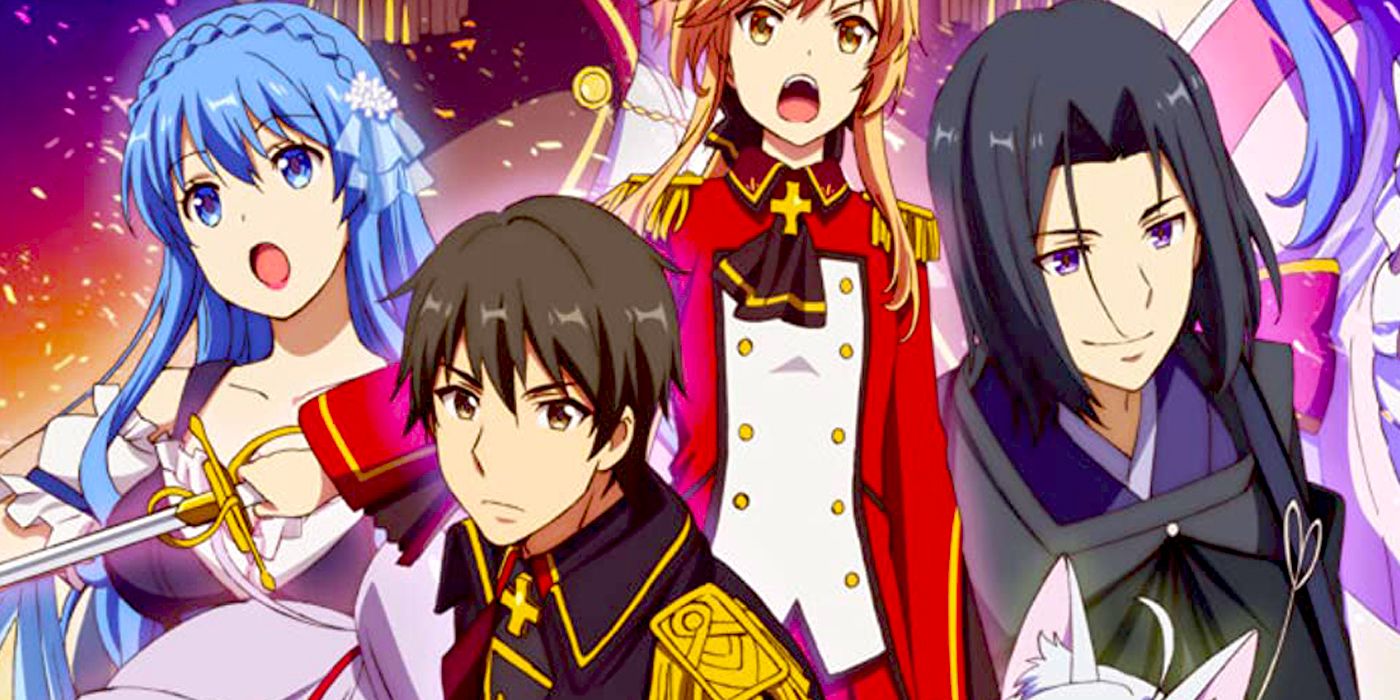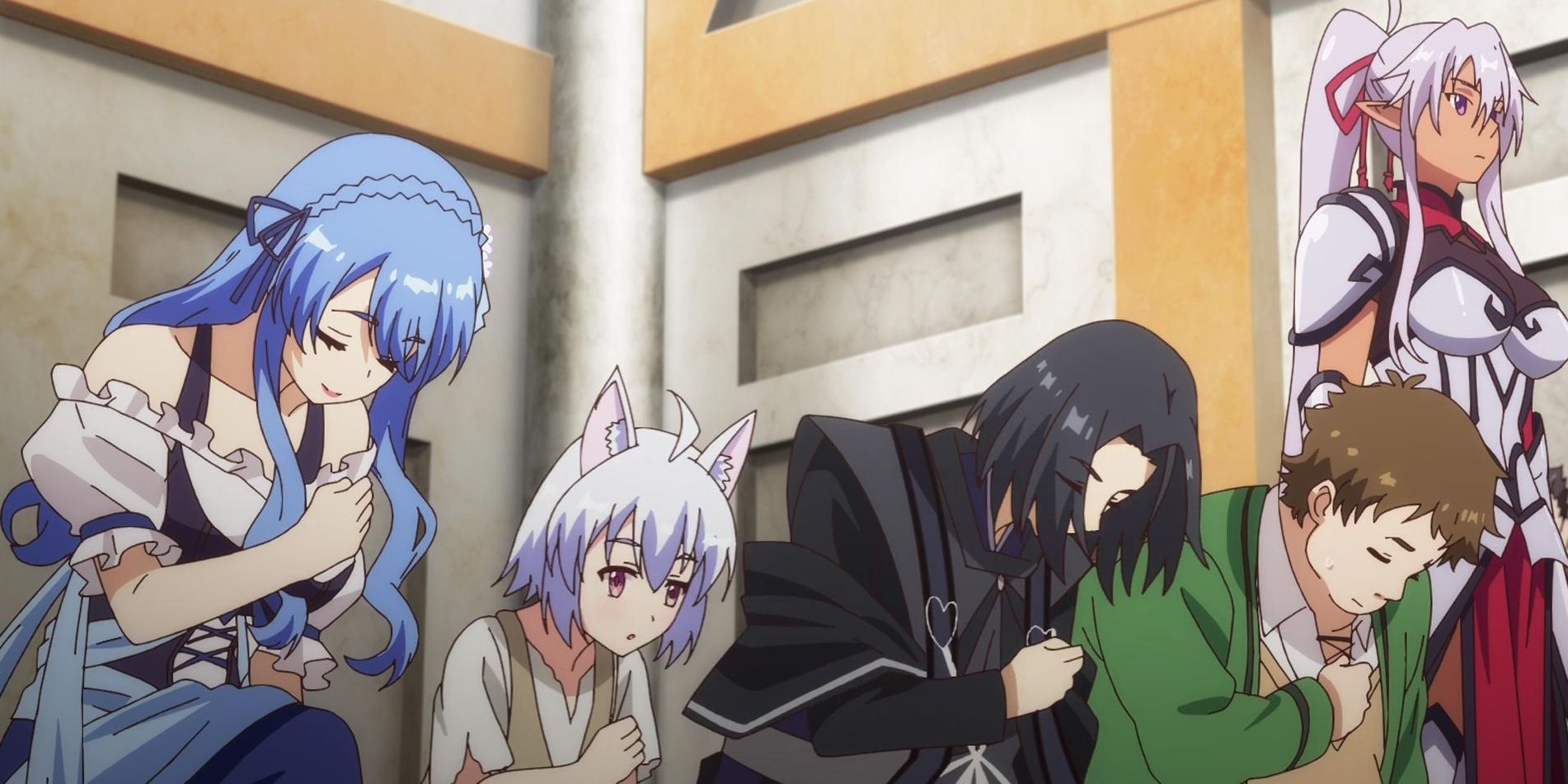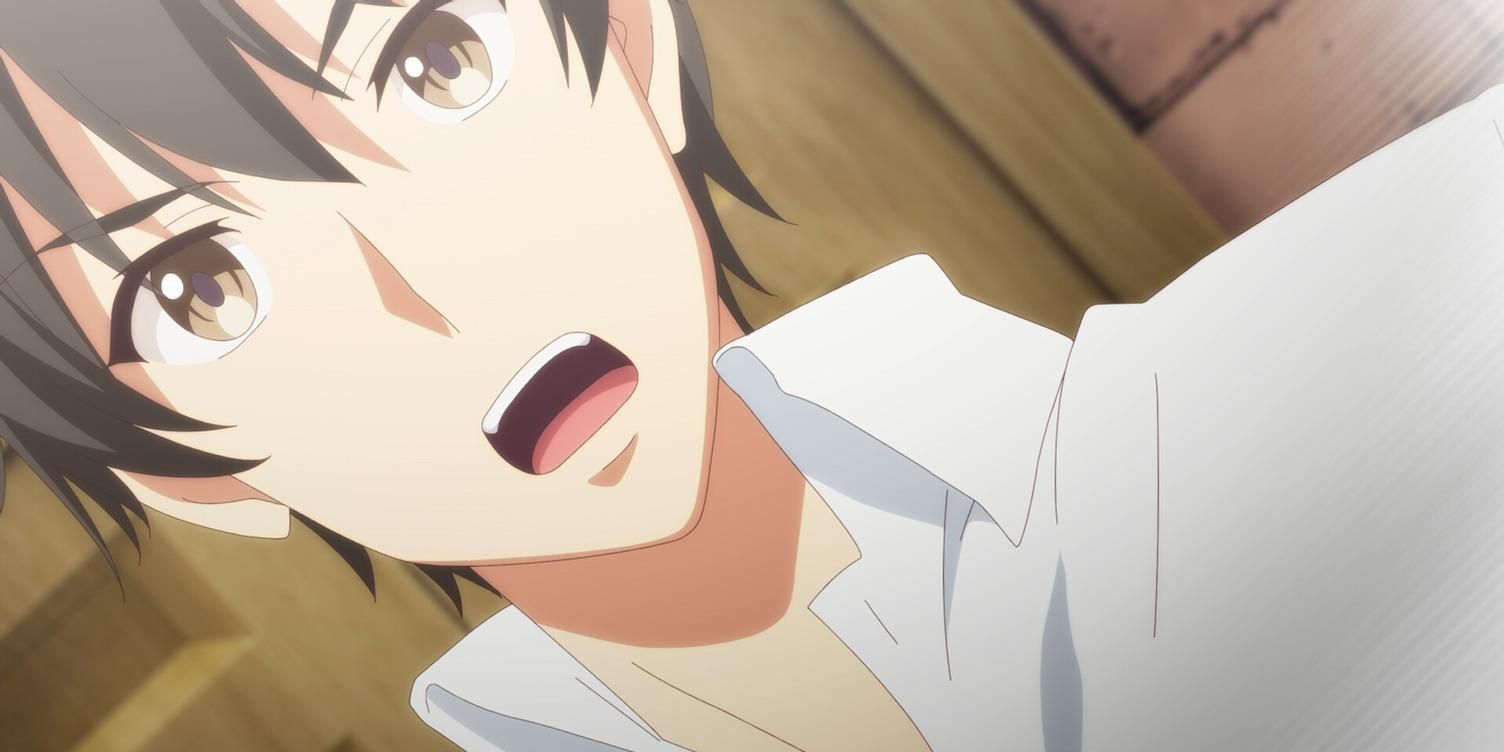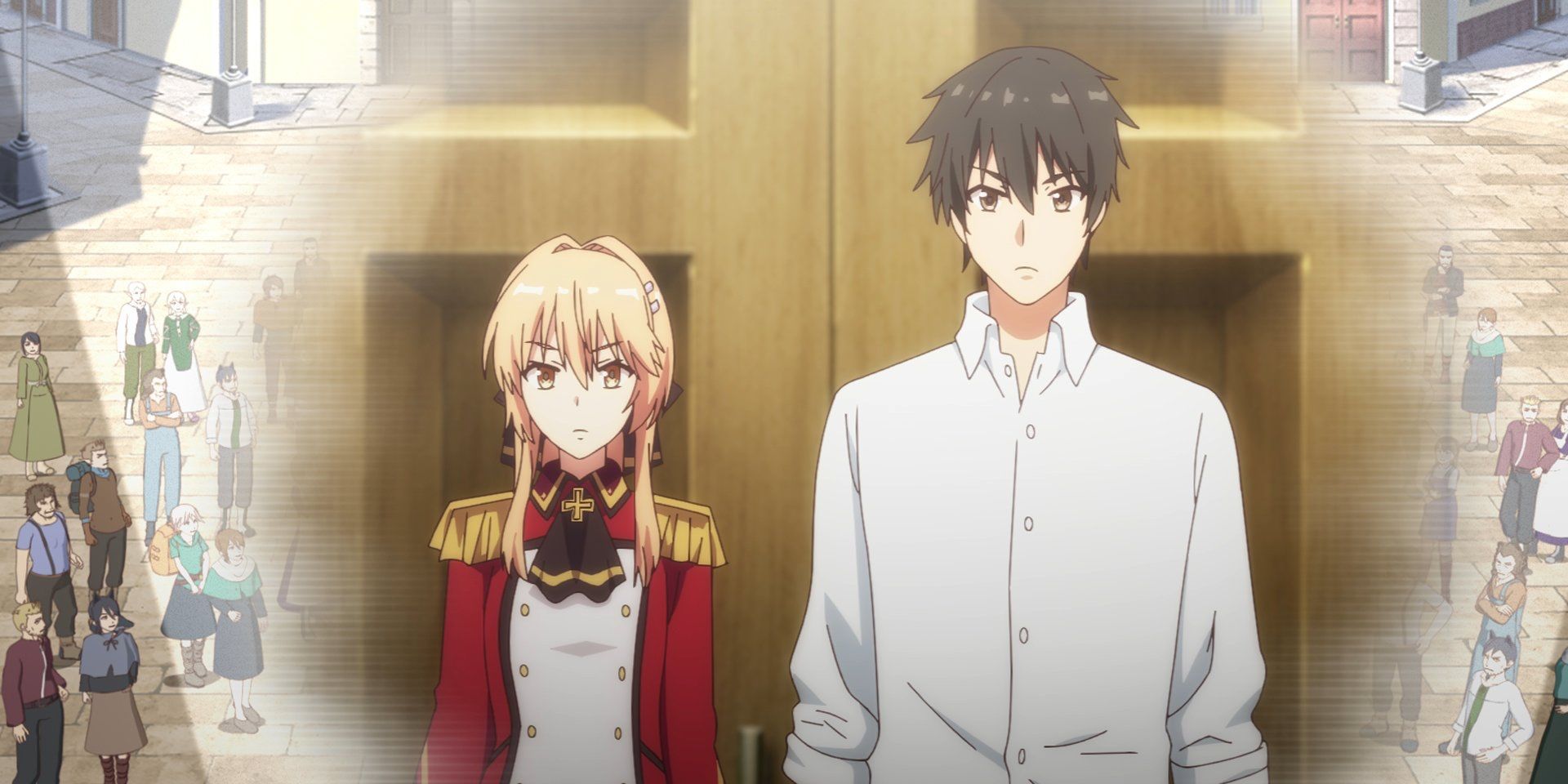WARNING: The following contains spoilers for the first season of How a Realist Hero Rebuilt the Kingdom, available on Funimation.
The first season of How a Realist Hero Rebuilt the Kingdom was a unique entry in the Summer 2021 anime season. In the first 13 episodes of the anime, modern-day high school graduate Kazuya Souma has already repaid international debts, eased famine and provided humanitarian relief as king of the medieval fantasy kingdom Elfrieden. Perhaps Souma's most controversial decision, however, has been to unite the four armies of the kingdom.
The decision, taken on the advice of Souma's Prime Minister Hakuya Kwonmin, was unpopular with the Three Dukes of Elfrieden. Souma wanted Castor Vargas' dragon air force, Excel Walter's magical navy and Georg Carmine's ground troops to join forces with his own royal guard. Duchess Walter acquiesced to the command with some convincing from her granddaughter Juna Doma, but Vargas and Carmine balked, resulting in an Elfrieden civil war. Here are some of the reasons why Souma's demand was and wasn't the best move for the kingdom.
Why Souma Wanted to Unite the Armies
At the start of Realist Hero, a Demon army is advancing through the land, attacking people of various nations. Keeping the people of Elfrieden united against Demons has always been one of Souma's key priorities. He has made potentially controversial decisions in pursuit of this before -- for example, hiding animal whisperer Tomoe's discovery that the Demons are theoretically capable of communicating with people. However, when it came to uniting the four armies, it wasn't just the Demons that Souma wanted to show a common front against.
The Republic of Turgis and The Nine-Headed Dragon Archipelago Union posed potential long-term territorial threats to Elfrieden, causing Souma to doubt the usefulness of a fragmented military with multiple command structures. The most pressing threat came from Amidonia, the same nation that Souma sold Elfrieden jewels to in order to ease the kingdom's debts.
Duke Carmine expressed frustration at Souma's recklessly modernizing reform, accusing him of having no respect for the traditions and existing governors of Elfrieden. Mercenaries from the neighboring Principality of Amidonia sought to take advantage of the rising contention between Souma and the duchies by providing their services to both sides of the conflict. With a strong Amidonian military presence in Elfrieden, Prince Gaius of Amidonia would then turn the campaign to an invasion to reclaim territory lost to Elfrieden decades before. Souma resolved that consolidating the power of the armies would be the only way to fend off not only the encroaching Demon army, but also a potential Amidonian invasion.
Why the Elfrieden Armies Were Separate to Begin With
We learn from Souma in Episode 6 that when a human king was first crowned in Elfrieden, the three duchies of the kingdom and their armies were given to beings of three different magical races so that no human could use the royal family as an excuse to claim human supremacy. In Episode 2, Souma asks for help from talented subjects regardless of race, age or gender. It's possible that Souma might have hoped his reputation as an inclusive leader would prevent people from accusing him of prioritizing humans.
In Episode 9, Souma tells the Three Dukes that he wants to unify their armies, and that they will be branded traitors if they refuse. Duke Vargas asks him a pertinent question: if there is only one army in Elfrieden and it is beholden to the king, who will hold Souma accountable if he becomes corrupt? In addition to representing the diversity of the kingdom, the separation of the armies also serves as a series of checks and balances against the central executive figure of the king. If one of four armies turns corrupt, there are three more to fight it. If there is only one army and it turns corrupt, Elfrieden itself could be corrupted.
Souma responds with dramatic resolve, promising Vargas that "if that happens, you can come and claim my head." This is a confident statement that reaffirms Souma's commitment to Elfrieden; he's willing to offer his life as forfeit to protect it. However, in practical terms, it does little to address Vargas' well-founded concerns. The audience that has followed Souma on his adventure as he brings progressive and inclusive ideas to the kingdom knows that it's unlikely he would become corrupt, but even Souma notes the possibility. A fan of the controversial writings of Niccolò Machiavelli, Souma describes Hakuya's plan to combine the armies as a necessary "cruelty." He goes on to paraphrase Machiavelli that leaders can become addicted to cruelty and be corrupted by it, making Vargas' objection especially meaningful.
The Consequences of the Elfrieden Civil War
Souma and the Dukes agree that whichever side loses will surrender their army to the other. In Episode 11, Souma's unyielding bodyguard Aisha as well as a surprise attack from Princess Liscia overwhelm the duke, and the dragon air force is Souma's to command. Before the battle, Souma receives news from soldier Glaive Magna that Duke Carmine was less interested in war with Souma and more interested in using the conflict as an excuse to drain the pockets of corrupt nobles. When Carmine learns of Vargas' defeat, he willingly submits to Souma's rule.
Souma ultimately invades Amidonia himself, introducing them to domestic freedoms that the principality's single-minded focus on war had previously denied. He also broadcasts a captured soldier singing Amidonia's jingoistic national anthem, and then lets her go to prove that he has no interest in quashing Amidonia's right to freely express anti-Elfrieden views.
By the end of the series, Elfrieden is still reeling from debt, poverty, and the disaster in the Dark Elves' God-Protected Forest in Episode 8. If Souma had allowed divisions to grow between his kingdom and the duchies, and Amidonia had waded into the conflict with its own agenda, he would have had to spend precious resources fighting a convoluted ideological war against multiple formidable opponents. Souma is compassionate to his subjects, taking personal responsibility for the shortcomings of the kingdom, but he is also a pragmatic realist. For this reason, he may have already calculated that risking an Elfrieden civil war would cost far fewer lives than allowing the internal disagreements to fester over time.
One of the things that makes Realist Hero so unique is its confidence in exploring politics in detail. Just like in real life, however, not everybody agrees on the best course of action. The strength of Dojyomaru's writing and Takashi Watanabe's clear direction is that they present Souma's decisions with enough depth that even fans who disagree with him can understand his reasoning.




